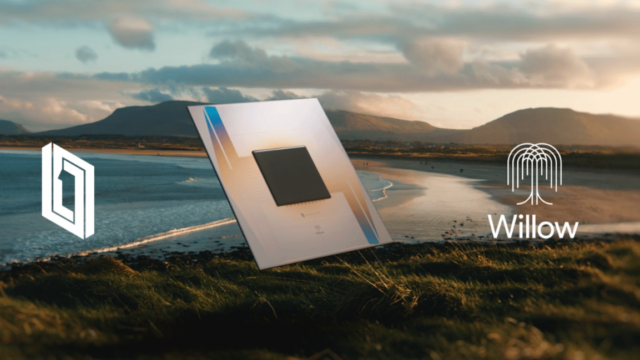Willow: Google reveals new quantum chip offering incomprehensibly fast processing

For all of the focus on AI, for many people, the future lives in quantum computing. Google is among those who agree, and the company has just unveiled its latest advancements in the field -- its quantum chip, Willow. Like quantum physics and quantum mechanics, the numbers and concepts involved in quantum computing are extraordinarily difficult to imagine.
Revealing its advancements, Google says that its quantum chip took less than five minutes to perform tasks that would take even the fastest supercomputers 10 septillion years. Providing some sense of perspective, Google points out that this is “a number that vastly exceeds the age of the Universe”. So what is it that makes Willow so special -- and so fast?
- More gamers can install Windows 11 24H2 after Microsoft semi-lifts update block
- Famm Connect is a queer-focused LinkedIn for establishing LGBTQIA+ business connections
- Microsoft brings big change to Windows 11’s battery indicator making it even more useful
Google highlights various breakthroughs that Willow has made, including a massive reduction in data errors. The team behind the chip has published an article in Nature that demonstrates how this was achieved in a way that was not previously possible. In the past, using more computational qubits resulted in more errors being introduced; this is not the case now:
Today in Nature, we published results showing that the more qubits we use in Willow, the more we reduce errors, and the more quantum the system becomes. We tested ever-larger arrays of physical qubits, scaling up from a grid of 3x3 encoded qubits, to a grid of 5x5, to a grid of 7x7 -- and each time, using our latest advances in quantum error correction, we were able to cut the error rate in half. In other words, we achieved an exponential reduction in the error rate. This historic accomplishment is known in the field as “below threshold” -- being able to drive errors down while scaling up the number of qubits.
In terms of performance, there is nothing to match Willow. The “classically hardest benchmark that can be done on a quantum computer today” was demolished in a matter of minutes. This same task would take one of the fastest supercomputer available an astonishing 10,000,000,000,000,000,000,000,000 years to work through.
For now, quantum computing in general and Willow specifically are highly experimental with few, if any, every day applications at the moment. But this will change. Simulations are a proposed use for such technology. Hartmut Neven, head of Google Quantum AI lab says:
This includes helping us discover new medicines, designing more efficient batteries for electric cars, and accelerating progress in fusion and new energy alternatives.
In short, don’t expect to find Willow or her descendant in your Windows PC anytime soon.
You can read more about Willow here.

Pingback: Google: More Quantum Claims; Some Are Incomprehensible Like Multiple Universes : Stephen E. Arnold @ Beyond Search